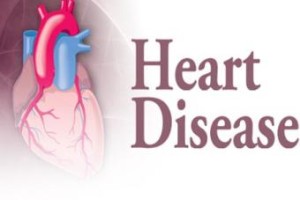- Home
- Editorial
- News
- Practice Guidelines
- Anesthesiology Guidelines
- Cancer Guidelines
- Cardiac Sciences Guidelines
- Critical Care Guidelines
- Dentistry Guidelines
- Dermatology Guidelines
- Diabetes and Endo Guidelines
- Diagnostics Guidelines
- ENT Guidelines
- Featured Practice Guidelines
- Gastroenterology Guidelines
- Geriatrics Guidelines
- Medicine Guidelines
- Nephrology Guidelines
- Neurosciences Guidelines
- Obs and Gynae Guidelines
- Ophthalmology Guidelines
- Orthopaedics Guidelines
- Paediatrics Guidelines
- Psychiatry Guidelines
- Pulmonology Guidelines
- Radiology Guidelines
- Surgery Guidelines
- Urology Guidelines
Heart benefit of moderate drinking greater in wealthy people

People who enjoy a few cocktails each week may be less likely to die from heart disease than people who rarely or never drink, especially if they’re rich, a Norwegian study suggests.
For the study, researchers examined survey data on drinking habits and demographic characteristics for 207,394 adults in Norway. During an average follow-up of 17 years, 8,435 participants died of cardiovascular disease.
Compared to the participants who drank less than once a month, moderate drinkers who enjoyed alcoholic beverages two to three times a week were 22 percent less likely to die of heart disease during the study, researchers report in PLoS Medicine.
But money also mattered.
Among the most affluent people, moderate drinkers were 34 percent less likely to die from heart disease. But among the poorest participants in the study, the odds of death for moderate drinkers were just 21 percent lower than for nondrinkers.
“We knew that the risk of alcohol-related hospitalizations and deaths was higher among less affluent individuals on average, despite that they, in general, drink less frequently,” said lead author Eirik Degerud of the Norwegian Institute of Public Health in Oslo.
“We now see that that the proposed benefit of alcohol on the risk of cardiovascular disease is more pronounced among those more affluent,” Degerud said by email. “But as there is no good reason why, mechanistically, alcohol should be more 'protective’ among those with an affluent background, we suspect that it is their affluent background that is the real reason behind the difference.”
Being poor also appeared to worsen the risks of heavy drinking.
Among the least affluent participants, individuals who had four to seven cocktails a week were 42 percent more likely to die from heart disease than infrequent imbibers. Heavy drinkers were also 70 percent more likely to die of a stroke and 49 percent more likely to die from any cause.
Frequent binge drinking was also associated with a higher risk of death from heart disease, but it wasn’t clear whether social class influenced these odds.
Researchers used just one measurement to reflect lifetime drinking habits, even though alcohol consumption might change over time.
Even so, the results add to evidence that the risk of premature death associated with poverty can be impacted by people’s drinking habits, said Juergen Rehm, author of an accompanying editorial and a researcher at the Dalla Lana School of Public Health at the University of Toronto.
“The findings indicate that the effects of alcohol differ depending on the socioeconomic position of the drinker,” Rehm said by email.
Affluent people shouldn’t think they can drink as much they like, however.
“One key message is that there is no safe level of alcohol consumption but that the risk differs based on other vulnerability factors often linked to socioeconomic status,” Rehm added.
Beyond just cardiovascular health, there are other reasons to cut back on alcohol, including an increased risk of certain cancers.
Based on this study and others, Rehm advised, “Less drinking is better for health.”

Disclaimer: This site is primarily intended for healthcare professionals. Any content/information on this website does not replace the advice of medical and/or health professionals and should not be construed as medical/diagnostic advice/endorsement or prescription. Use of this site is subject to our terms of use, privacy policy, advertisement policy. © 2020 Minerva Medical Treatment Pvt Ltd